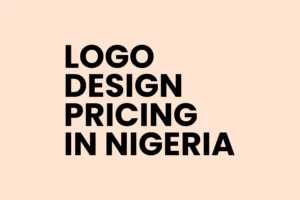What is the Development Bank of Nigeria (DBN)?
Development Bank of Nigeria (DBN) is a parastatal established by the Federal Government of Nigeria (FGN) in collaboration with global development partners, including;
- World Bank (WB)
- African Development Bank (AfDB)
- KfW Development Bank
- French Agency for Development (AFD)
- European Investment Bank (EIB))
The Federal Government of Nigeria started the organization to address the significant financing challenges faced by Micro, Small, and Medium Scale Enterprises (MSMEs) in Nigeria.
DBN provides financing and partial credit guarantees to eligible financial intermediaries on a market-conforming and fully financially sustainable basis. The mission of DBN is to help alleviate the financing constraints that MSMEs and small businesses in Nigeria face.
DBN will contribute to the alleviation of specific financing constraints that hamper the growth of domestic production and commerce by providing targeted wholesale funding. This funding aims to fill identified enterprise financing gaps in the MSME segment.
Although MSMEs are collectively the largest employers in many low-income countries like Nigeria, the viability of MSMEs is being put in jeopardy due to a lack of access to risk-management tools like savings, insurance, and credit. As a result, their expansion is frequently stunted because they need more access to credit, equity, and payment services.
What does the Development Bank of Nigeria do?
Participating Financial Institutions, which include eligible retail intermediaries such as commercial banks, microfinance banks, existing retail DFIs, and leasing companies, receive wholesale term funding and risk-sharing facilities from the Development Bank of Nigeria for on-lending to MSMEs.
Their products and services are geared toward fostering the growth of the society that surrounds us by assisting regional business owners and giving them the ability to fuel economic expansion. The repayment tenure for a DBN loan is flexible (up to 10 years, with a moratorium period that can last up to 18 months), and the pricing is pragmatic and about market rates.
Function of development bank in Nigeria
Finance to Finance On-lending Scheme
DBN developed this on-lending program, especially for Financial Institutions (FI) that already provide loans to Micro, Small, and Medium-Sized Enterprises. As a result, DBN Participating Financial Institutions can satisfy the financing requirements of their FI clients who make loans to MSMEs for up to seven years.
Microfinance banks, institutions, financial non-governmental organizations (NGOs), cooperatives, fintech companies, and other non-bank financial institutions can all qualify as PFIs.
Long-Term Financing Plan for PFIs
Participating Financial Institutions are eligible to receive Long-Term Finance to support their long-term lending of up to ten years to Micro, Small, and Medium-Sized Enterprises. The fund’s structure is adaptable and can be easily modified to meet the one-of-a-kind requirements and unique financial architecture of the PFI.
PFIs can request this facility to meet the long-term financing requirements of their MSME customers. Typically, the available funding is on a short-term basis.
Partial Credit Risk Guarantees
It is up to the participating financial institutions to decide whether or not they want to share risk with the Development Bank of Nigeria.
At the moment, Impact provides three different kinds of guarantee products to PFIs for facilities that have been granted to MSMEs. These are the Individual Guarantee, the Blanket Guarantee, and the Portfolio Guarantee.
In addition, Impact can provide PFIs with Technical Assistance on an as-needed basis to assist them in improving their MSME financing capabilities.
Aspects of the Guarantee that DBN Must Consider
1. A maximum guarantee coverage of sixty percent of the loan amount
2. The maximum amount that you can borrow is subject to change from time to time
3. Maximum term of five years, which may be increased to eight years for certain types of projects
4. Every single industry that falls under the umbrella of the MSME business segment
In addition, Impact can provide PFIs with Technical Assistance on an as-needed basis to assist them in improving their MSME financing capabilities.
Capacity Building
Both the Participating Financial Institutions and the ultimate end borrowers will be given access to the Capacity Building Technical Assistance that will be made available.
Building capacity is a core mandate of the Development Bank of Nigeria. They are committed to building the capacity of Nigeria’s micro, small, and medium-sized enterprises (MSMEs) to enable them to;
- Formalize their operations
- Grow their businesses, and
- Become more bankable;
so that they have easier access to credit that is readily available.
Who owns the Development Bank of Nigeria?
The Development Bank of Nigeria Plc (DBN) is a public LLC licensed by the CBN as a Development Finance Institution. It is registered under the Companies and Allied Matters Act (CAMA), which governs businesses in Nigeria. Shareholders of DBN include;
- Ministry of Finance Incorporated (MOFI)
- Nigeria Sovereign Investment Authority (NSIA)
- African Development Bank (AfDB), and
- European Investment Bank (EIB)
The Federal Government of Nigeria is the ultimate owner of the shares held by the MOFI and the NSIA in DBN. Hence, DBN complies with the Fol. The MOFI and NSIA are both shareholders in DBN. The DBN is not a ministry, department, or agency of the Federal Government of Nigeria. Therefore, the Office of the Accountant-General of the Federation needs to provide the DBN with budgetary allocations or capital releases.

Who is eligible to apply for a loan through the DBN?
To qualify for the loan, micro, small, and medium-sized enterprises (MSMEs) must be engaged in productive enterprise activities. In addition, they must be customers of eligible financial institutions for the program. Participating Financial Institutions (PFIs) will receive funding and risk-sharing guarantees from DBN and lend that money to end beneficiaries. DBN is prepared to provide both of these services.
PFIs, include Commercial Banks, Microfinance Banks, Development Finance Institutions (DFIs), and other Financial Institutions. These are the conduits through which borrowers can apply for loans from the DBN. Hence, the length of time that it takes to repay a DBN loan is flexible (up to 10 years). Also, the interest rates conform to market standards while remaining fully financially sustainable.
The Development Bank of Nigeria will consider granting a loan to any MSME producing goods or services. Additionally, PFIs will receive funding and risk-sharing guarantees from DBN and lend that money to end beneficiaries. DBN is prepared to provide both of these services.
To qualify for these loans, the company must be a customer of one of Nigeria’s Participating Financial Institutions (PFIs). These PFIs must meet specific criteria. PFIs include major Commercial Banks, Microfinance Banks, Development Finance Institutions (DFIs), and Other Financial Institutions.
Read Also: 3 Innovative Financing Options for Small Businesses in Nigeria
Steps To Get a Small Business Loan From the Development Bank Of Nigeria
1. Visit your bank: You should go to a Commercial Bank, Microfinance Bank, Development Finance Institution (DFI), and any other Financial Institution that you have access to and tell them that you want to apply for a DBN Loan.
2. After conducting an analysis of the company and the intended use of the loan, the bank will submit a funding request to the DBN if satisfied with its findings.
3. If DBN approves the loan, DBN will disburse the funds to the Bank so that the Bank can lend them to end borrowers.
Frequently asked questions about DBN
Are loans directly from DBN available to businesses?
To my knowledge, the Development Bank of Nigeria (DBN) does not directly loan commercial enterprises. PFIs are the intermediaries that the DBN loan goes through. PFIs are the entities responsible for carrying out both the credit evaluation and the supervision of the loan.
How long do I have to pay off the loan?
You may be eligible for a moratorium on principal repayment for working capital and investment projects of up to 18 months. You may have up to 10 years to pay back the loan, depending on the nature of your company and the reason for taking out the loan.
What is the current rate of interest?
The interest rates on a DBN loan are adjustable, and they vary depending on the loan’s term and how they compare to market rates.
How does DBN loan differ from other commercial loans?
Small businesses are the primary focus of the DBN loan program, which the Nigerian government developed to facilitate greater access to capital for companies in this sector. In addition, a DBN loan is typically much longer than a typical commercial loan, which is usually only a few years.



